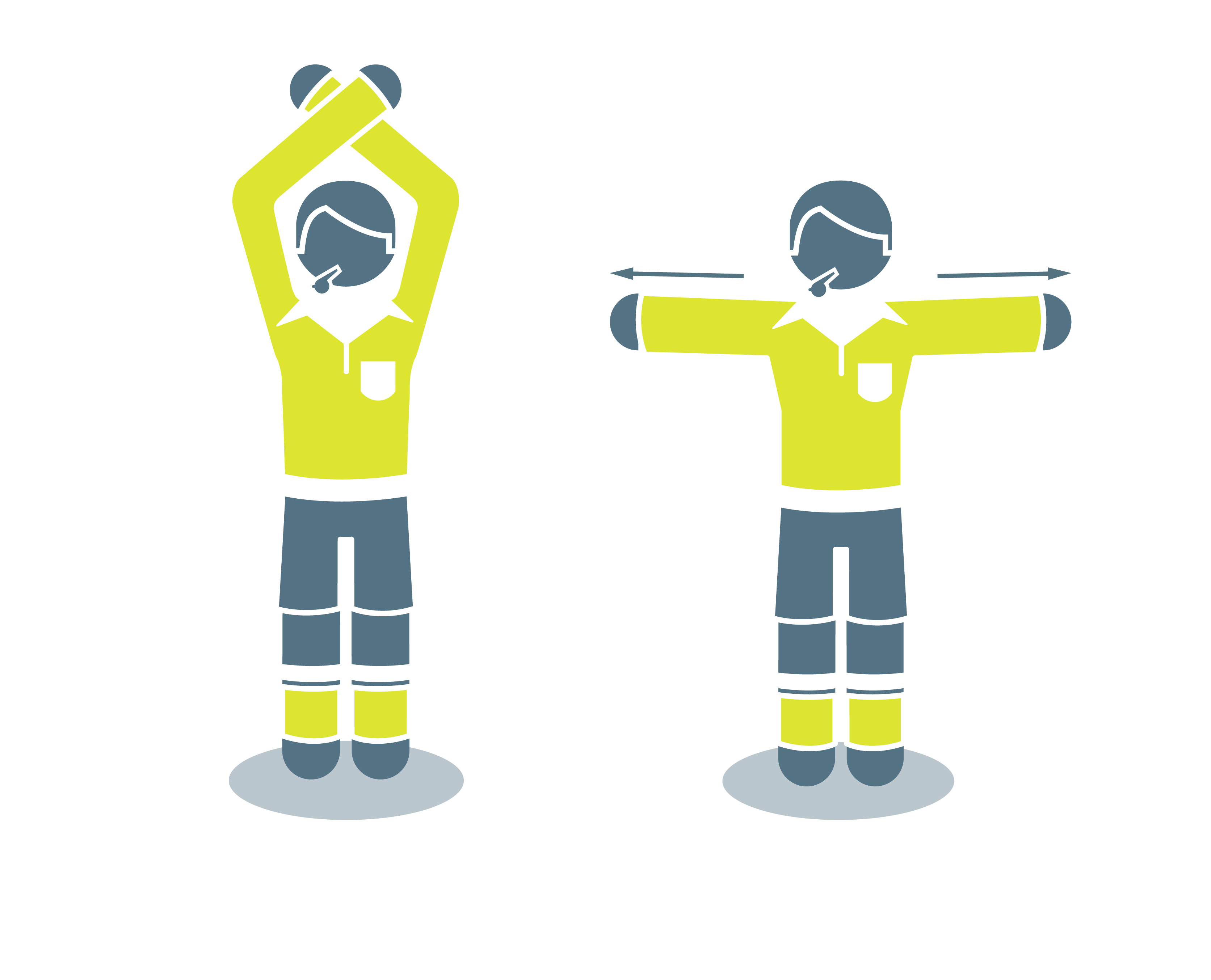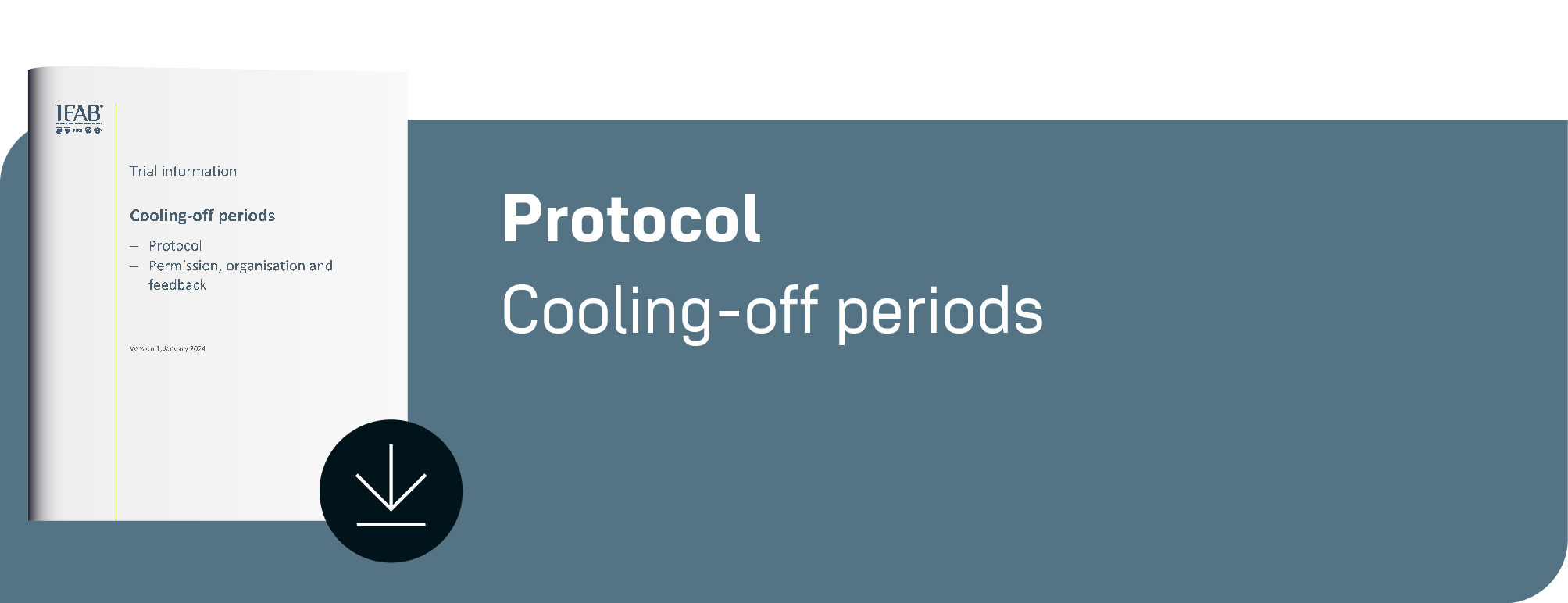Cooling-off periodsCooling-off periods
Background to the trial
Law 5 gives the referee the authority to stop, suspend or abandon a match because of undue outside influence, e.g. spectator misbehaviour. Sometimes, however, the behaviour of the participants (players and team officials) is such that a significant confrontation occurs which threatens the safety of the players and the match officials.
In such situations, the game may benefit from play being officially suspended to allow tempers and emotions to settle down. Empowering the referee to initiate an official cooling-off period may therefore be helpful in preventing further confrontations and the need for the match to be abandoned.
The use of cooling-off periods will focus responsibility on the captains and coaches to encourage their team-mates and team officials to behave appropriately.
Protocol
The following procedure will apply:
- The referee will blow the whistle and initiate a cooling-off period by using the following new signal:
- Raising both arms above their head and crossing them at the wrists
- uncrossing their arms and moving them away from each other at shoulder level in a sideways pushing motion to indicate that the players must go to their respective penalty areas (or another area indicated by the referee for safety reasons)


- Following this signal, all players must move to, and remain within, their own penalty area to prevent negative interactions with spectators and opposing team officials
- A player who does not respect the requirement to remain within their penalty area may be cautioned (YC)
- The two captains, the two coaches and any other appropriate person(s) approved by the referee, e.g. delegate(s), security/safety official(s), will meet the referee and the other match officials in the centre circle, where the referee will explain why play has been suspended and the next steps
- All other team officials, substitutes and substituted players must remain outside the field of play and inside the technical area if there is one, except for one team official who may take drinks to their own players and/or assess or treat any injured players
- The referee will inform the captains and coaches of the likely duration of the cooling-off period, which will be decided by the referee based on the nature and extent of the confrontation and other factors, e.g. the weather (in cold or wet conditions, a shorter cooling-off period will usually be more appropriate than in warm weather)
- The referee will ask the captains and coaches to speak to their players about the need for proper behaviour and calmness when the game resumes, to avoid injury and/or the match being abandoned
- When the referee judges that play can resume, the captains will be called back to the centre circle and informed by the referee as to when play will restart – a short warm-up period may be deemed appropriate to help prevent injury
- A maximum of two cooling-off periods are allowed in any given match
- The match will be abandoned if, at any time after two cooling-off periods have been called, the referee deems that the conditions are not conducive to continuing the match
- If deemed necessary, the referee may abandon a match without there being any cooling-off period or during/after one cooling-off period
- The referee will include details of any cooling-off period(s) in the post-match report
Suspension for outside interference (non-participant behaviour)
- If the referee decides to suspend a match because of outside interference, the first part of the new signal outlined above may be used to indicate that the match is suspended, i.e. by raising both arms above their head and crossing them at the wrists
- The referee should then indicate where the players should go – for safety reasons, this may be the changing rooms or tunnel area and not the penalty areas
Permission, organisation and feedback
This trial is available only to competitions that do not involve teams from the top two domestic levels or senior ‘A’ international teams.
This protocol must be used in its entirety. No variations are allowed, unless approved in writing by The IFAB.
Competition organisers must apply to The IFAB, through their national FA or confederation (whichever is appropriate), for permission to take part in the trial, indicating which competition(s) will be involved. Other information may be requested by The IFAB.
Permission to take part will usually be given by The IFAB, as long as competition organisers complete the necessary undertakings, which will include a requirement to supply feedback and information/data (whenever requested by The IFAB) to allow the evaluation of the trial.
For further details or to apply to take part in the trial, please contact [email protected].

